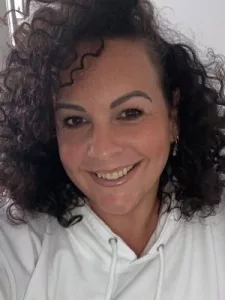Working to address cancer disparities in women of color through innovative solutions, Claire Paxman, Director of Global Training at Paxman Scalp Cooling, discusses tackling these issues and providing a more inclusive future.
CREATING AN INCLUSIVE CANCER CARE SYSTEM
As the American Cancer Society recently launched the VOICES of Black Women (VOICES) study to better understand what causes higher case and death rates among the demographic, this marks a pivotal step in addressing one of the most pressing health disparities in the US.
With Black women having the highest death rates from cancer among any racial or ethnic group, this stark reality underscores the urgent need for targeted research and innovative interventions. Starting the conversation of how innovative technologies can aid in changing the cancer treatment experience for not just Black women but all women of color is the first step to altering these disparities.
UNDERSTANDING THE DISPARITY AND THE ROLE OF INNOVATIVE TECHNOLOGIES
The VOICES study aims to unravel the complex factors contributing to the disproportionately high cancer mortality rates among Black women.
As this demographic faces significantly higher death rates compared to their white counterparts, particularly for breast, cervical, and endometrial cancer, the study’s comprehensive approach seeks to identify barriers to early detection, differences in treatment, socioeconomic factors, and biological differences that may influence these outcomes.
Understanding these factors is essential for developing effective strategies to reduce and ultimately eliminate such disparities.
In conjunction with these research efforts, it is crucial to highlight the role of innovative technologies in improving cancer treatment experiences and outcomes for Black women. For example, technologies such as scalp cooling, also known as cold capping, have shown remarkable efficacy in preventing chemotherapy-induced hair loss.
Hair loss is not merely a cosmetic issue for many cancer patients, as it can profoundly impact self-esteem, mental health, and overall quality of life. The issue of emotional side effects of cancer and cancer treatment affects all women.
Scalp cooling can significantly reduce the likelihood of hair loss during treatment, and the effectiveness is not determined by any patient characteristic. There is however specific hair preparation guidance for scalp cooling, which varies according to hair type.
Proper hair preparation is crucial for achieving optimal results with scalp cooling, no matter the hair type. For curly and coily hair, this preparation includes parting or sectioning the hair to spread the hair across the scalp to achieve an even cooling process, using water and conditioner to aid conductivity, and the option of using small and loose twists and braids to get the hair as flat as possible if smoothing the hair flat is not possible.
An ongoing clinical trial at Montefiore Einstein Comprehensive Cancer Center in New York aims to continue proving scalp cooling can be effective for women of color, and with this in mind, I continue to remain dedicated to providing tailored training and resources to physicians to ensure that women of color can fully benefit from this technology.

STRIVING TOWARD EQUITY IN CANCER CARE
The intersection of the VOICES study and the practical benefits of innovative technologies represents a significant stride toward equity in cancer care for women of color. During the COVID-19 pandemic, non-Hispanic Black and Hispanic or Latin patients with cancer were more likely to experience treatment delays or discontinuations compared to non-Hispanic White patients. This trend persisted during the first year of the pandemic but changed over time due to advancements in cancer care.
These advancements offer not only hope but also pave the way for more personalized, inclusive, and respectful treatment protocols. By combining rigorous research with innovative technological solutions, we can address the specific needs of Black women and work toward eliminating the disparities that have persisted for far too long.
A major example of these disparities has been Black women facing lower quality care, in which they are more likely to receive non-guideline concordant treatment. This means they may not receive care that aligns with established best practices.
Cancer treatment should not be a one-size-fits-all approach. The unique experiences and needs of Black women must be at the forefront of our efforts to improve cancer care. This means ensuring access to advanced technologies like scalp cooling and providing the necessary education and support to use these tools effectively. It also means advocating for policies and practices that promote equity in healthcare, from early detection and diagnosis to treatment and survivorship.
As we move forward, it is essential for healthcare providers, researchers, policymakers, and technology developers to collaborate and share knowledge. By working together, we can create a more inclusive and effective cancer care system that serves all patients, regardless of race or ethnicity.

























